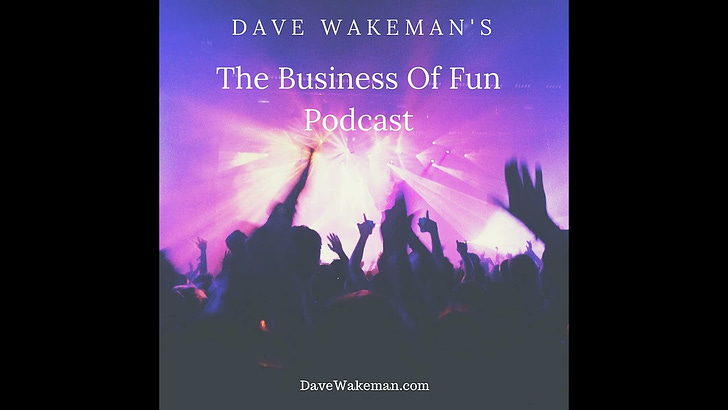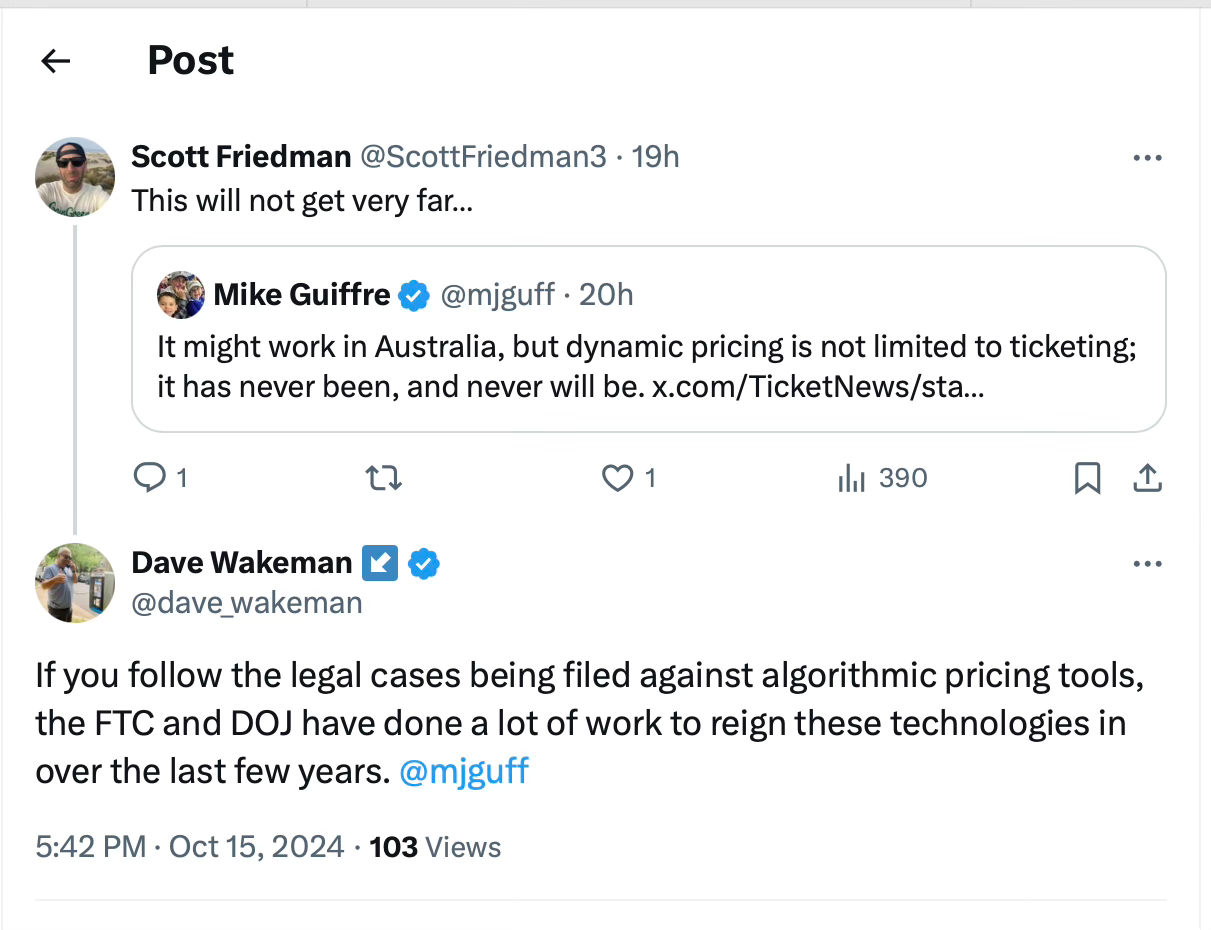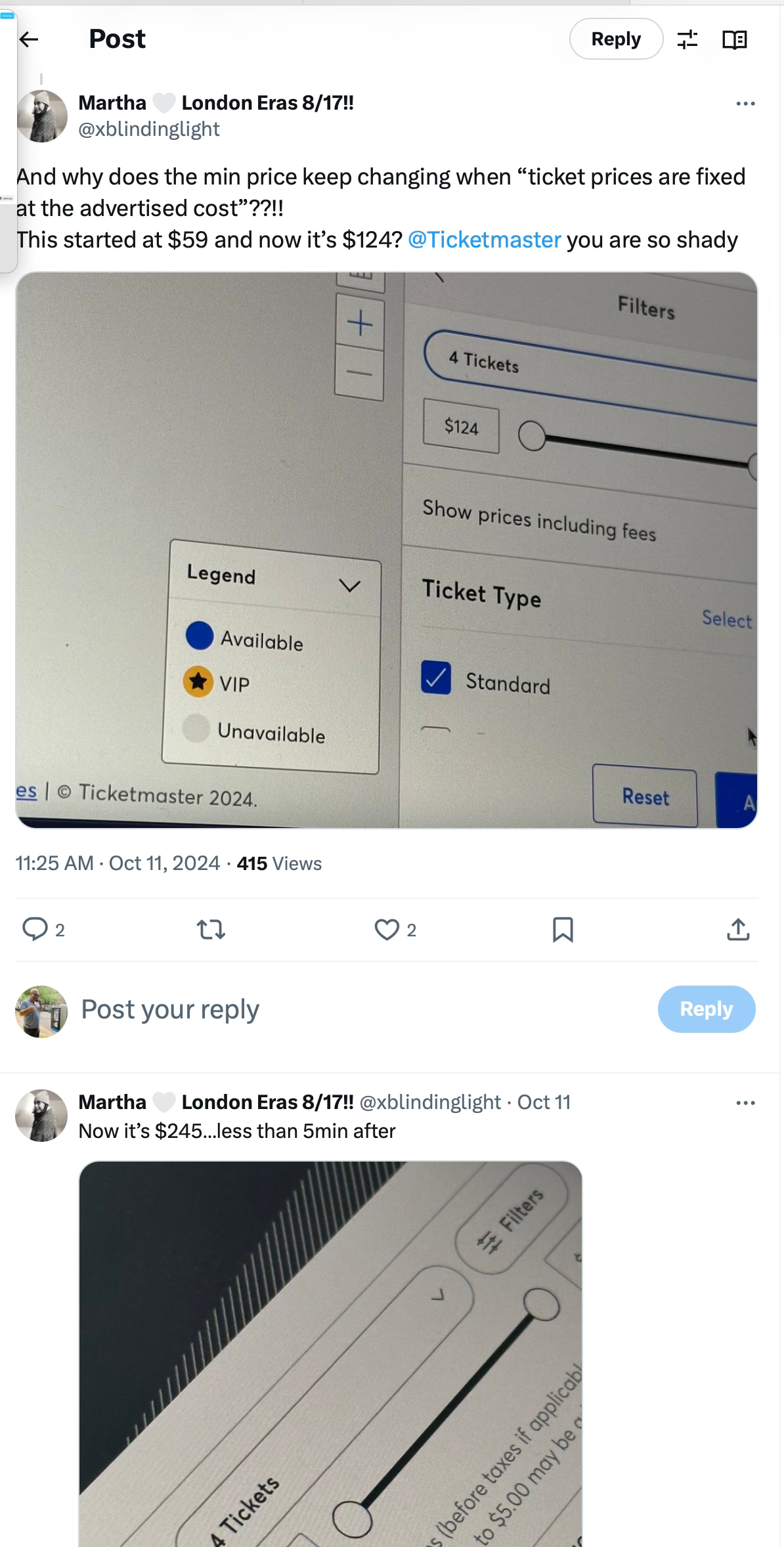Andrew Recinos Looks Outside of the Arts For Arts Business Ideas...
Hi!
I had a chance to talk with Andrew Recinos from Tessitura!
You can find the full conversation here:
We had a fun talk.
The premise Andrew pitched to me was our conversation would build off the ideas in my workshop, “Fans For Life.”
I was game.
We discuss:
Why Andrew finds my POV valuable.
Bringing in ideas from outside the world of the arts.
Case studies that were great from Ballet Austin, the Roundhouse Theatre in London, and more.
“Why we’ve always done things” makes an appearance…
And, a lot more.
Give Tessitura a look at www.tessitura.com
The Australian government turns its attention to “dynamic pricing”.
I’ve been working on a longer piece about dynamic pricing for over a month.
FWIW, I’ve been spending more time working and thinking about some of these evergreen topics that people bring to my attention.
(IF YOU HAVE A QUESTION OR IDEA YOU WANT TO KNOW MORE ABOUT…HIT REPLY AND TELL ME!)
Dynamic Pricing is one of them.
This is interesting.
I don’t have a fundamental hate of the practice of dynamic pricing.
Mike Guiffre tweets:
Followed by Scott Friedman’s tweet and my reply:
Mike and Scott aren’t wrong.
Historically, dynamic pricing has been accepted as part of business because we have become accustomed to airlines and hotels using the practice.
Over the last several years, the FTC and DOJ have become more aggressive in protecting people from algorithmic pricing.
As the FTC said in a blog post: “Price fixing by algorithm is still price fixing.”
We’ve seen the FTC back this belief up by taking actions against businesses such as:
I’ve hit on pricing here and on the podcast a lot over the years.
I’m aware that dynamic pricing is something that people have come to accept as part of their lives.
I’ve also been pretty clear that dynamic pricing has a downside that includes:
Dynamic pricing can be difficult to do well.
Dynamic pricing can create customer resentment.
Dynamic pricing can be less profitable in some circumstances.
Many fans have complained about the way that dynamic pricing actually seems to happen in ticket sales.
This example isn’t unusual:
Robert Smith from the Cure makes a few points about the practice as well.
He calls the practice a “scam”.
What does this mean?
It means that you shouldn’t assume that things won’t change.
The current antitrust environment is 180 degrees from the antitrust environment of, even, 7 years ago.
The DOJ and FTC have become more aggressive about behaviors that limit competition and can be explotatitive against average Americans.
This is bipartisan.
The Google antitrust case that declared Google a monopoly was filed by the Trump Administration.
The Live Nation case, the Biden Administration.
Does this mean anything will change? Or, everything will change?
I don’t know.
What I do know is that just the volume of articles and cases about algorithmic pricing technologies and dynamic pricing should cause everyone to think about how they are setting their prices.
More importantly, making sure you have some real pricing skill in your organization…even if you do use dynamic pricing and technology to assist in your pricing.
Tell me what you think in the Slack Channel.
Do me a favor!
You’ve made it to the bottom of the page, share this post on social media or with a friend or colleague!







